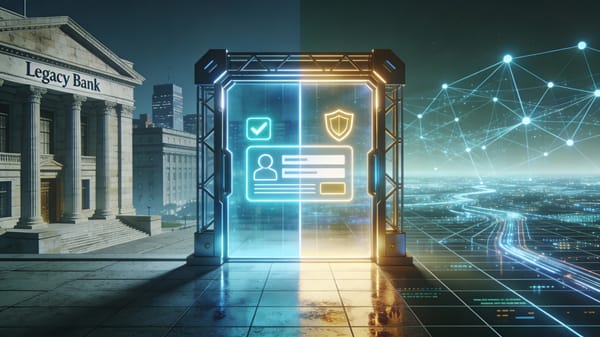Does The Crypto Exchange You Use Matter? Here Is What You Need To Know.
When your crypto portfolio soars, you become most vulnerable to the one risk that could cost you everything—and most investors don't even know it exists.

When your crypto portfolio soars, you become most vulnerable to the one risk that could cost you everything—and most investors don't even know it exists.
The euphoria of watching your cryptocurrency portfolio climb can be intoxicating. But as digital asset wealth management experts warn, "You can have 1,000,000 XRP and still end up broke" without understanding one critical truth—when you hold crypto on exchanges, you're not actually the owner. You're an unsecured creditor.
This isn't just theoretical risk. It's a harsh reality that thousands of investors learned the hard way when major platforms collapsed, taking billions in customer funds with them.
The Uncomfortable Truth: You Don't Own What You Think You Own
Industry experts who have witnessed firsthand the devastating consequences of this misunderstanding now help family offices and high-net-worth individuals avoid catastrophic mistakes. The fundamental issue comes down to a simple but overlooked fact: when you purchase crypto on an exchange, "the bitcoin isn't actually stored in your account on the exchange, it's stored on the blockchain" and the crypto exchange is facilitating transactions "on your behalf as an intermediary."
When third-party crypto custodians like exchanges hold your private keys, they ultimately are responsible for controlling your crypto and "your assets may be subject to regulatory restrictions or be at risk of theft from security breaches."
The Creditor Reality: What Happens When Exchanges Fail
The legal reality becomes brutally clear during bankruptcy proceedings. In its most recent quarterly SEC filing, Coinbase gave name to this specific risk, dubbing customers "unsecured creditors" in the event of the company's bankruptcy. This means your crypto gets lumped in with all other company debts, and you'll likely recover only pennies on the dollar—if anything at all.
The Celsius Network bankruptcy provides a stark real-world example. In January 2023, the bankruptcy court held that cryptocurrency deposited in the Celsius "Earn" program accounts (the "Earn Accounts") was property of the Celsius bankruptcy estate and Earn Account holders are unsecured creditors waiting in line to be repaid.
The court held that, taken together, these provisions "clearly and unambiguously transferred ownership of collateral to the Debtors."
The $4.2 Billion Lesson
Approximately 600,000 Celsius accounts with a total value of $4.2 billion were affected by this ruling. These weren't small investors—many were sophisticated users who believed they understood the risks. As legal analysis noted, the case was "plagued with the increasingly common hallmarks for cryptocurrency cases" including "thousands of upset customers frustrated that their crypto was being tied up as Bitcoin recovered".
Even those who thought they had "custody" accounts weren't fully protected. While custody account holders eventually received a settlement allowing them to recover 72.5% of their crypto, they still lost over a quarter of their holdings and faced years of legal uncertainty.
Why Price Appreciation Increases Your Risk
Industry experts emphasize that the risk becomes most dangerous precisely when your portfolio is performing well. Here's why:
Larger Target for Hackers: Exchanges face constant threats, with "billions of dollars in losses" from attacks over the past decade, including major incidents like "Coincheck (2018): $534 million stolen through a phishing attack on hot wallets."
Regulatory Crackdowns: Success often brings scrutiny. Regulators may ask exchanges to "limit your transactions, freeze your funds, or even block access to your wallet."
Operational Failures: The FTX collapse showed how even major exchanges can fail catastrophically, with the platform owing creditors nearly $8 billion when "there was no backup—unlike U.S. banks, where the government insures the funds up to certain limits."
Psychological Complacency: When portfolios are growing, investors often leave larger amounts on exchanges for convenience, not realizing they're maximizing their exposure to custodial risk.
The Self-Custody Solution: Taking True Ownership
Self-custody "is the practice of personally holding and managing your digital assets without relying on third-party services" where "you have full control over your private keys, the cryptographic keys that grant access to and control over your crypto assets."
Industry experts consistently recommend moving to cold storage—hardware wallets that keep your private keys completely offline. As Jordan Baltazor, chief administrative officer at regulated crypto custodian Fortress Trust, explains: "best practices that we use in other areas of personal life should apply to cryptocurrency" including "diversification of storage approach and weighing of risks."
The Trade-offs
Self-custody isn't without challenges. When you take custody of your own private keys, "there is no hotline number to call if you make a mistake, and it's highly unlikely you'll be able to recover your funds." Natural disasters, wars, and other global events have shown that "keeping crypto in the personal version of a bank vault has its own set of unique and evolving risks."
However, these risks are manageable through proper backup procedures and security practices, while the custodial risk of exchanges can wipe out everything instantly.
A Real-World Warning Story
Scenario: An investor bought 50,000 ABC coin at $0.50 each, investing $25,000. ABC rises to $5.00, making their holdings worth $250,000. Instead of moving to cold storage, they leave it on the exchange for "convenience" and potential trading opportunities.
Then the exchange faces a liquidity crisis or regulatory action and freezes withdrawals. Suddenly, that $250,000 becomes worthless paper in a bankruptcy proceeding. Even if they eventually recover 70% like some Celsius customers, they've lost $75,000—three times their original investment—not because crypto failed, but because it wasnt in their custody. They didn't truly own it.
Expert Consensus: Move Your Gains Off Exchanges
Industry experts with qualifications in digital asset custody emphasize the critical importance of proper asset management, particularly for significant holdings. The crypto community has long embraced the maxim "Not your keys, not your coins", but this takes on urgent importance when portfolio values surge. As one expert notes, "Know what you're going to do with the XRP to generate wealth and income for you and your family"—and that starts with actually owning it.
Taking Action: Your Custody Strategy
For significant crypto holdings, experts recommend:
- Regular Withdrawal Schedule: Move appreciating assets to cold storage systematically
- Diversified Storage: Don't rely on a single solution—use multiple hardware wallets and backup methods
- Professional Guidance: Consider working with qualified digital asset advisors for large portfolios
- Legal Structure: Understand the terms of service of any platform you use
The recent regulatory progress with the GENIUS Act and Project Crypto initiatives may improve the landscape, but they don't eliminate custodial risk for assets held on exchanges.
The Bottom Line
Your crypto's value growth should be a signal to increase security, not a reason to become complacent. The choice is stark: accept the convenience of exchange custody and risk losing everything to bankruptcy or operational failure, or take responsibility for true ownership through self-custody. For many investors, the decision becomes clear once they understand they're not actually owners—they're just creditors in line, hoping their exchange doesn't become the next Celsius or FTX.
In crypto, ownership isn't just philosophical—it's financial survival.
Sources
- Claver, Jake. "Crypto Exec Says You Can Have 1,000,000 XRP and Still End Up Broke." The Crypto Basic, July 16, 2025.
- "Self-Custody of Your Crypto | Secure Digital Ownership." Arculus, 2024.
- "What is crypto custody?" Kraken Learn Center.
- Salzberg, Mark. "(US) Who Owns the Crypto: Bankruptcy Court Rules That Customers Do Not Own The Deposited Crypto." Restructuring GlobalView, November 29, 2023.
- "Breaking Down the First-Ever Crypto Bankruptcy Ruling." Columbia Business Law Review, 2023.
- "Bankruptcy court confirms that retail borrowers' crypto belongs to Celsius." Ropes & Gray LLP, November 16, 2023.
- "Celsius custody account holders can receive 72.5% of their crypto, says bankruptcy judge." Cointelegraph, March 21, 2023.
- "What Are the Main Custody Risks in Crypto Investing." Safeheron, July 2025.
- "FTX scam explained: Everything you need to know." TechTarget, 2024.
- "For bitcoin bulls who self-custody crypto, the global risks are growing." CNBC, April 6, 2025.
- "What is Self Custody in Crypto?" Trust Wallet, July 9, 2024.
- "What Is Self-Custody in Crypto?" Ledger Academy, April 3, 2025.
DISCLAIMER: This article is for informational purposes only and does not constitute investment advice or a recommendation to buy, sell, or hold any securities. Investments in cryptocurrencies or other financial assets carry significant risks, including the potential for total loss, extreme volatility, and regulatory uncertainty. Past performance is not indicative of future results. Always consult a qualified financial professional and conduct thorough research before making any investment decisions.



